In today’s world, looking through a candidate’s resume and having a standard interview with them is not enough in the quest for the perfect employee. That’s why employers have to use some tricks and most of them are so simple, that an applicant could fail one of these psychological tests and not even notice the test itself.
We at ViralSection were surprised to learn that an offer to have coffee or tea can oftentimes be a part of the interview that can affect the candidate’s future destiny.
1. You are offered a cup of coffee for a reason.
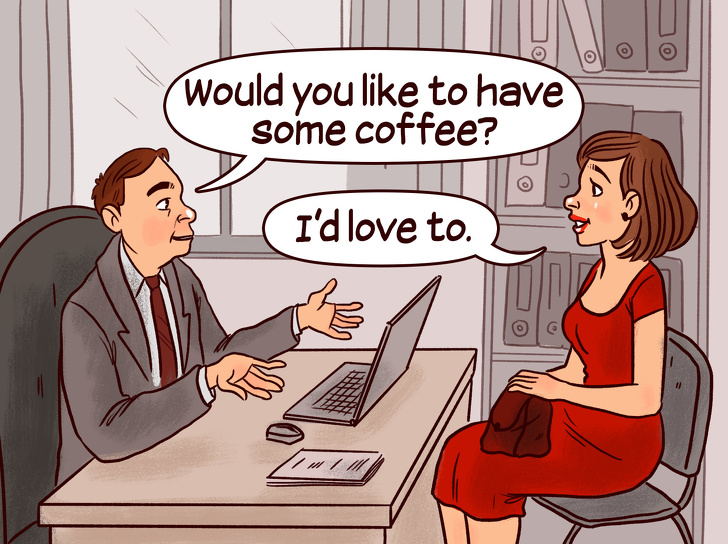
Recently the “cup of coffee” test has been gaining in popularity among employers. At the beginning of the interview, the boss takes the candidate to the kitchen and offers them a cup of coffee. After the interview, the employer carefully watches what the candidate will do with the cup — will they ask where to put it, will they simply leave the cup on the table, or will they wash it by themselves in the kitchen.
Head of the accounting software development company “Xero Australia,” Trent Innes, who created this method, says that this trick speaks volumes about a person’s character and their manners, more than their answers to the actual interview questions. It can also show how fast the candidate will fit into the team. The best decision, in this case, is to go to the kitchen after the interview and wash the cup by yourself.
2. The boss deliberately keeps you waiting.
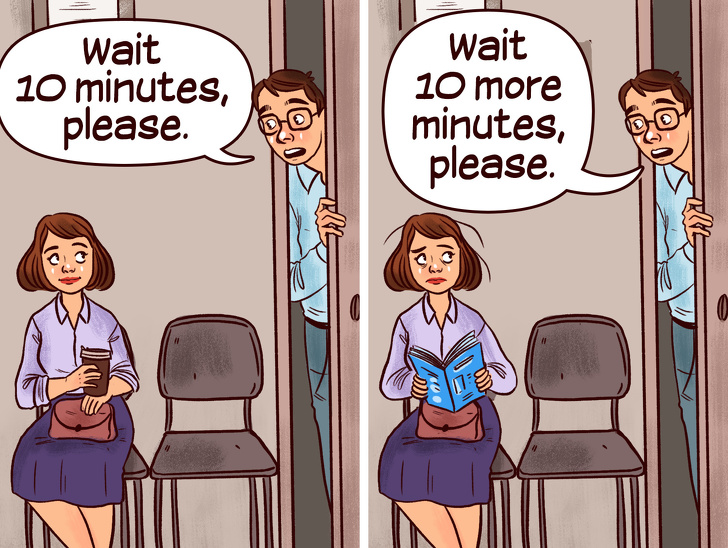
In reality, the “cup of coffee” test is an innocent trick. The situation can be much harder if the interview gets scheduled for 9 a.m., but when the candidate comes into the office early, the employer is still busy and the job seeker has to wait for 10 minutes. And then another 10 minutes. And then another 15 minutes.
This trick can show how emotionally stable the candidate is in stressful situations and how much they want to get this position in general.
3. The interviewer suddenly starts to shout.

Raising their voice, screaming, and even using insulting words is another way to model a stressful situation and a chance to check the candidate’s ability to resist stress. Experts advise you to remain calm and answer these questions as calmly as possible.
4. The interviewer makes a strange request and asks you to jump out the window.
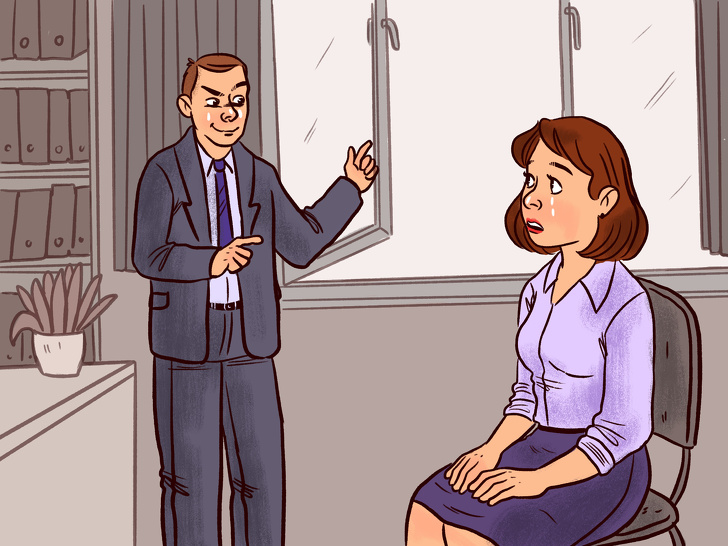
Another unpleasant surprise for a job seeker might be hiding behind an eccentric request — like to jump out of the window, for example. In this case, the employer wants to see the candidate’s ability to use “out of the box” thinking.
You can use the following way out of this situation: get on the windowsill, but jump on the floor of the room where the interview is taking place. No one clarified where to land. Or you can shock the boss by asking the counter question with a win-win option: “How will the company benefit from my jump?”
5. The employer suddenly starts to behave in a weird way.
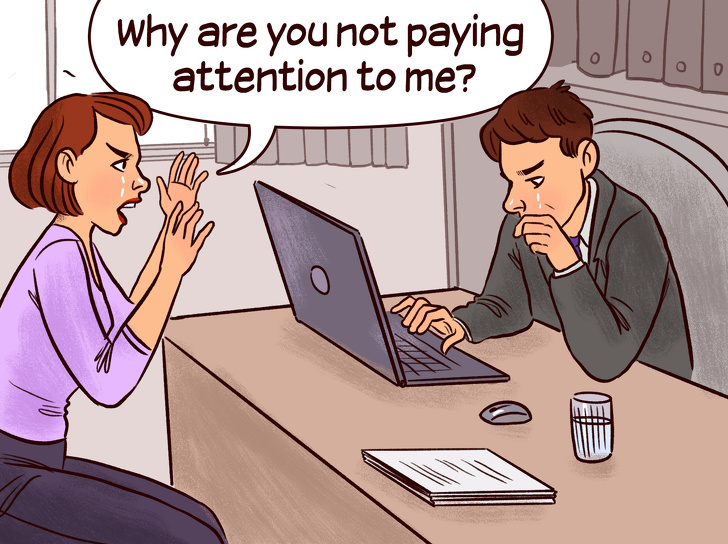
Another trick is when the interviewer starts to behave strangely. The candidate might be ignored by the interviewer, either by them looking at their computer screen or by answering a phone call and leaving the room in the middle of the interview.
This trick can show how the candidate is going to re-focus the interviewer’s attention or what ways they are going to use to get out of this situation. One of the most effective options is to ask the interviewer to reschedule the interview for another day.
6. The candidate is introduced to the whole team.
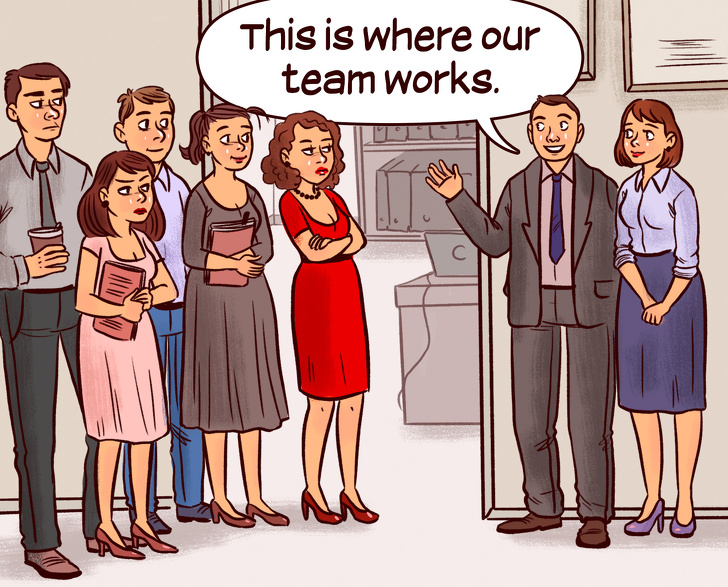
It is possible that the boss will offer the candidate a chance to communicate with their potential colleagues after the interview. It can be in the office or after work. This is not a simple polite gesture — it’s the employer’s way of finding out their employees’ opinions about the candidate.
7. The boss drops their pen on the floor.
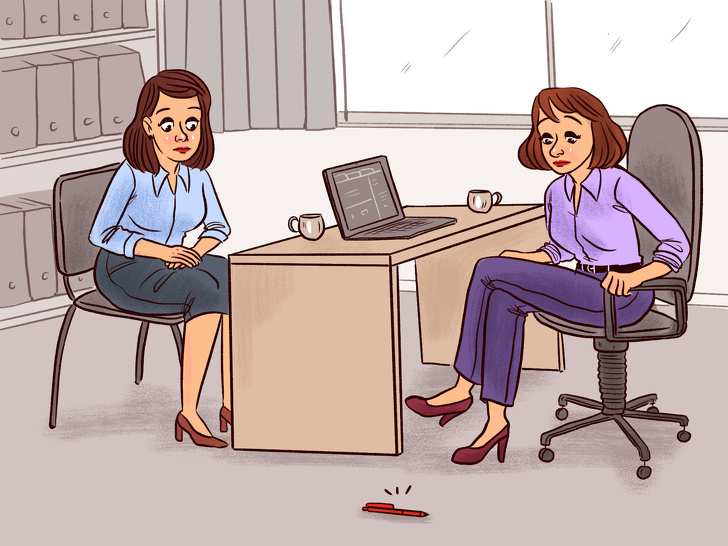
Another test that can help the employer to spot responsive and benevolent candidates is to drop a pen and watch the applicant’s reaction. If the candidate instinctively bends down and picks the pen up, it’s likely that they’ll be hired for the job. If the applicant lets the interviewer do it, it’s likely that they won’t.
Have you ever encountered these tests at interviews? We would be glad to hear from you in the comments!





















